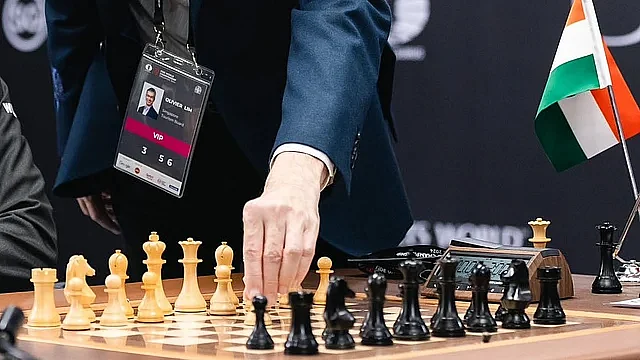Once the game of kings and strategists, ancient chess has seen a remarkable digital transformation in recent years. From what was once played on wooden boards in quiet parlours, centuries-old strategy has merged with modern esports entertainment to create a worldwide digital phenomenon. This unlikely union of tradition and technology has driven chess into unmatched appeal, producing a new generation of digital grandmasters and millions of passionate fans all around. (More Sports News)
The numbers behind this surge reveal an amazing tale. With Chess.com alone claiming more than 10 million daily active players, online chess platforms now have over 200 million registered users. The Covid-19 pandemic supercharged this digital renaissance by driving a 300% rise in new chess accounts as people looked for intellectual stimulation at home under lockdowns. From a quarantine pastime to a permanent cultural force, chess has not only held on to its popularity post-pandemic, it has grown stronger than ever.
The transition of chess into digital platforms represents the fundamental aspect behind this transformation. These modern platforms have revolutionized the game beyond what anyone could have predicted a decade ago. Digital tools offer users comprehensive game analysis capabilities while sophisticated anti-cheat systems protect fair play settings and auto match-matching features unite players worldwide within seconds.
Furthermore, the introduction of bullet (1-minute) and blitz (3-5 minute) time controls in competitive chess has created dynamic play environments that suit contemporary digital platforms and short attention spans.
The explosion of streaming has completely reshaped how we play games. The chess streaming sensations of top player Hikaru Nakamura when he joined Twitch in 2018 stunned observers, who never predicted this game would dominate the platform's popularity. The top chess streamers today attract massive viewing audiences that reach tens of thousands simultaneously and Hikaru Nakamura has built a network that exceeds 1.5 million followers.
A record-breaking 600,000 chess fans simultaneously watched World Chess Championship matches between Magnus Carlsen and Ian Nepomniachtchi across multiple streaming platforms, exceeding traditional sports viewership.
Esports organizations have noticed this rapid growth. In 2024, South Korean esports powerhouse Gen.G made waves by signing Indian chess star Arjun Erigaisi as their first pro chess player. This move shocked both the chess and esports communities. Team Liquid signed top GMs Magnus Carlsen and Fabiano Caruana. S8UL became the only Indian team to have been selected as club partner for the eSports World Cup. They signed GMs Nihal Sarin and Aravindh Chithambaram earlier this year.
The involvement of famous people has given chess a boost in its mainstream appeal. When big-name streamers like xQc and Pokimane started to play on Chess.com, they brought the game to new audiences. The PogChamps tournament series, which features well-known internet personalities who don't have much chess experience, pulls in viewer numbers that are much larger than traditional chess broadcasts. Even Hollywood has started to pay attention, with actors such as Will Smith and Rainn Wilson sharing how much they enjoy chess.
The most significant effect of digital chess may be its educational impact. Chess's cognitive benefits have been recognized by schools around the world, which are now integrating online chess platforms into their curriculum. Studies have shown that chess improves problem-solving skills, memory, and mathematical ability. Online platforms have made these benefits available to millions who may not have otherwise been exposed to chess.
Upcoming technologies will determine how chess develops as a game. The artificial intelligence programs Stockfish and Leela Chess Zero revolutionize training processes because they provide analytical capabilities that surpass human capacity. Virtual reality platforms build immersive three-dimensional experiences and future tournament forecasts include blockchain-based competitions that award crypto prizes.
Yet for all its digital transformation, chess retains the essential qualities that have captivated players for centuries. The thrill of a perfectly executed combination, the tension of time pressure in a blitz game, the satisfaction of outmaneuvering an opponent — these experiences remain unchanged whether played on wood or silicon.
As chess continues its conquest of the digital world, it stands as a testament to the enduring power of human intellect and creativity in an increasingly technological age. The game that survived the rise and fall of empires is now thriving in the age of algorithms and esports, proving that true strategy never goes out of style.
The views and opinions expressed are those of the author. The author is the co-founder off chess management startup MGD1















